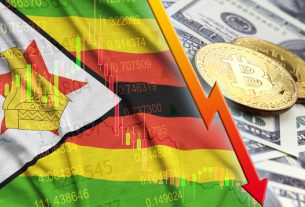One of the most cited economic articles of all time, Nobel Prize-winning Austrian economist Friedrich A. Hayek’s “The Use of Knowledge in Society” discusses some very important and fascinating ideas that help us grasp the importance of the market economy. Decentralized decision making, self-governance, individualistic knowledge, and the rapid communication of the price system are some of the themes talked about by Hayek.
The Circumstances of Time and Place
“The peculiar character of a rational economic order is determined precisely by the fact that the knowledge of the circumstances of which we must make use never exists in concentrated or integrated form but solely as the disbursed bits of incomplete and frequently contradictory knowledge which all the separate individuals possess.”
Here Hayek says that the knowledge that we must use to make economic decisions does not exist in any singular or consolidated form, rather that knowledge is widely dispersed among all the different people in society. Much of this knowledge is personal, subjective, tacit, and unique to each individual. No single person or group has all this knowledge nor does it exist anywhere in any concentrated form, rather we all hold unique bits of this knowledge inside of us.
Only some people know how to pilot a commercial jet plane. Some people are uniquely skilled in leading teams and running a business. Only some people know about farming, others futures trading, others academic research, and so on. Each individual has unique talents and insights in his particular sphere.
This is how society and the economy come into existence, a diversity of people acting using their unique knowledge and skills. Society is not formed through a single person who holds all of the knowledge in society.
Hayek goes on to say “the economic problem in society is mainly one of rapid adaptation to changes in the particular circumstance of time and place. it would seem to follow that the ultimate decisions must be left to the people who are familiar with the circumstances, who know directly of the relevant changes and of the resources immediately available to meet them.”
This is an argument for localization and for allowing important decisions to be made by those closest to the problem. Those with the knowledge of time and place, those most adjacent and intimate with the problems should be the ones calling the shots, not those far away and most removed from the situation.
For example, say there is a severe hurricane that hits Florida. Inevitably there will be members of the community, local business owners, and local government officials who rapidly make important decisions to help the situation. These people should be allowed to make their decisions because they are the most knowledgeable about the situation and can be the most efficient, unlike the federal government which is far away and unfamiliar with the local conditions.
The Rapid Communication of Information
Hayek also talks about the price system. He describes it as a vast communications network that disseminates information incredibly fast and efficiently and enables us to adjust our behavior accordingly.
Hayek uses the tin market as an example. Let’s say there was a supply shock that decreased the supply of tin. The price of tin and every product that tin went into would rise.
You as a consumer would not need to know that there was a supply shock, all you’d need to know is that the price rose. That price change alone would alter your scale of preferences and shift your behavior.
Prices are signals that carry immense amounts of information that guide our choices and incentivize us in certain directions. We need to know nothing behind the cause of the price change in order to make efficient economic choices. The price signal is all we need to to make our choices. From this angle we can see that the unhindered and free flow of prices is incredibly important as it enables that rapid communication of valuable information for economic decision making and resource allocation.
In this way the price system is a communication network that came into existence on accident. No one planned it or created it, rather it came about incidentally through human cooperation, which makes it all the more amazing.
This article was originally posted on Red Tea News.





